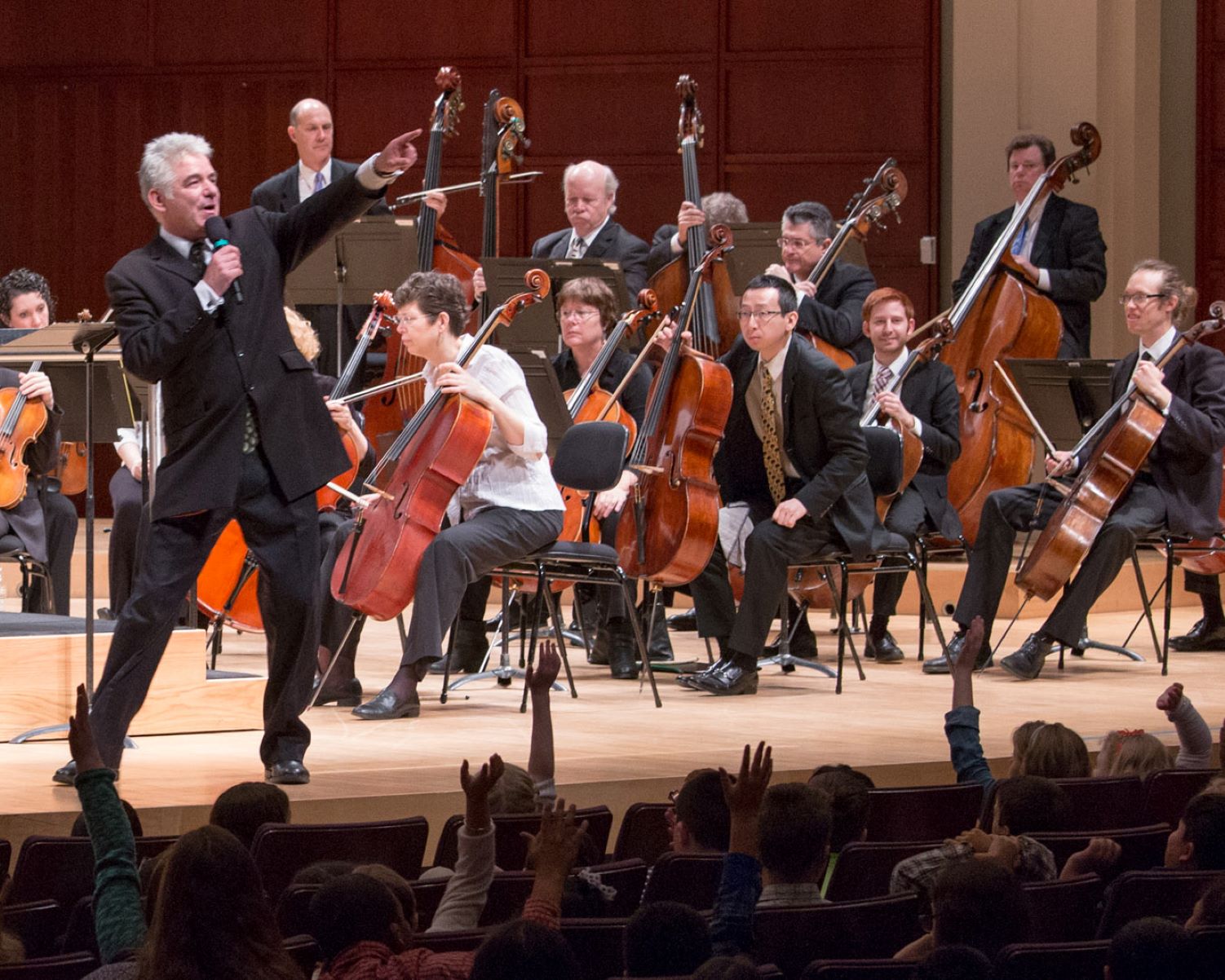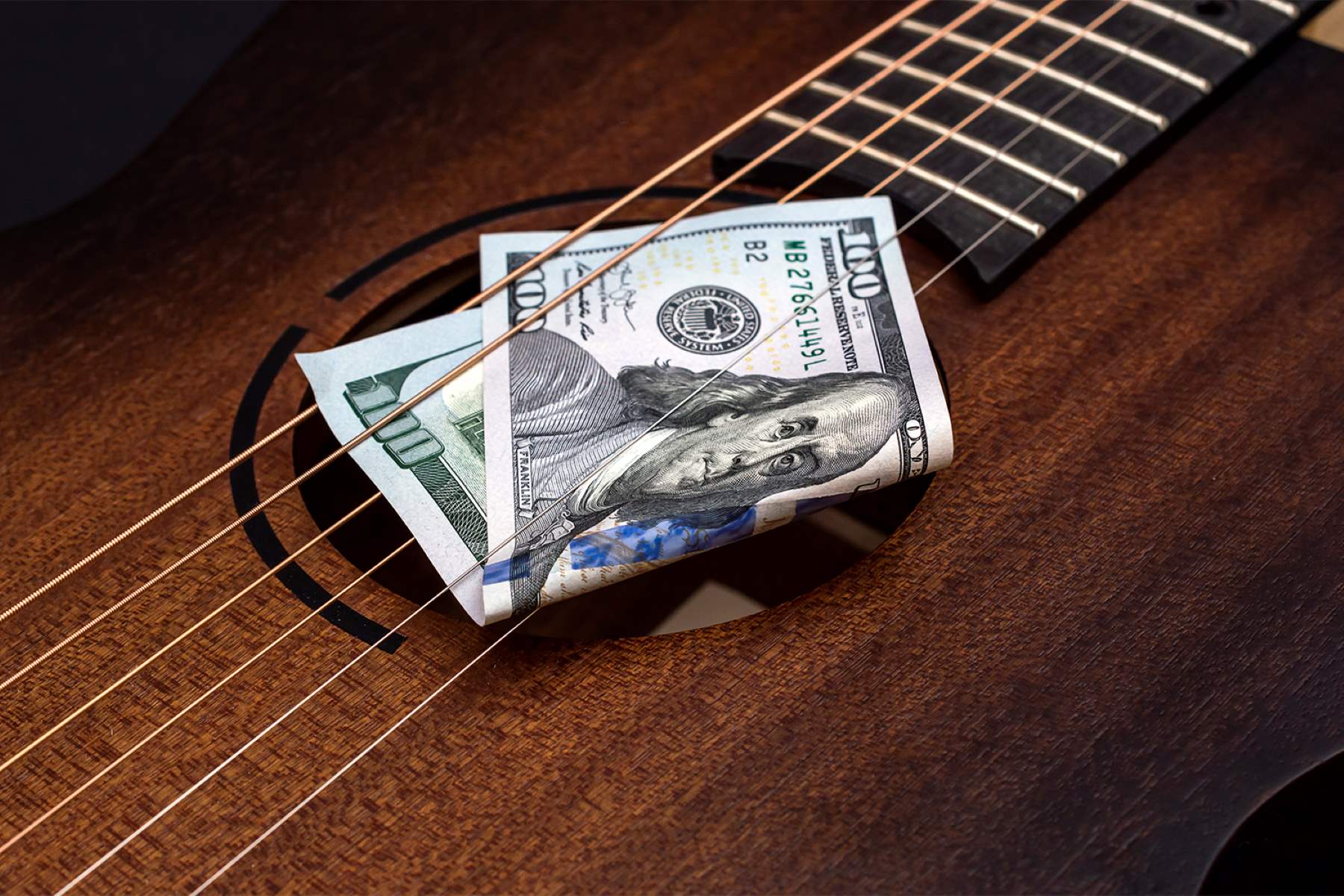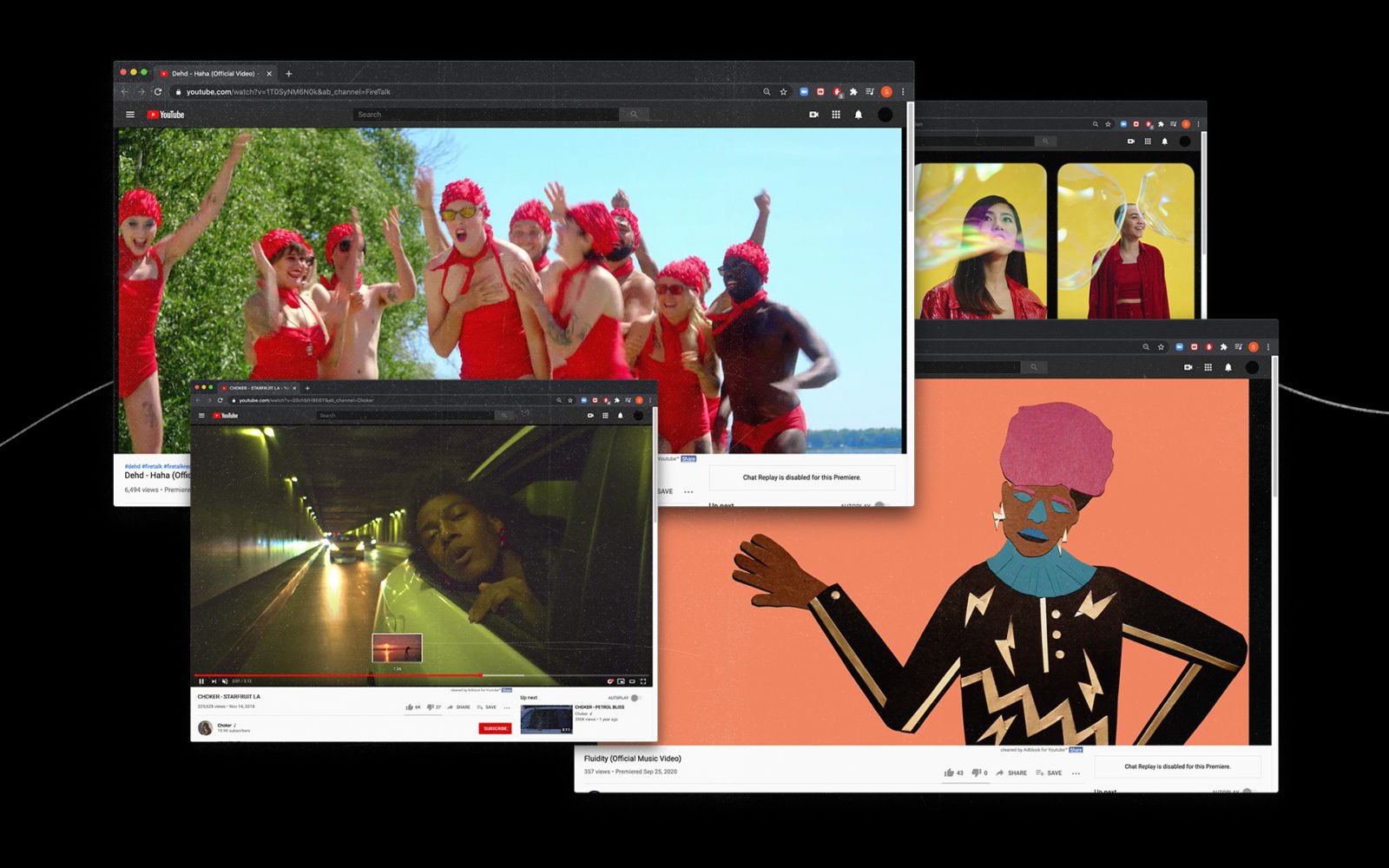Home>Production & Technology>Musician>How Much Does A Musician Make Per Concert


Musician
How Much Does A Musician Make Per Concert
Published: January 28, 2024
Discover how much a musician can earn per concert and explore the potential earnings in the music industry. Gain insights into the financial prospects of being a musician.
(Many of the links in this article redirect to a specific reviewed product. Your purchase of these products through affiliate links helps to generate commission for AudioLover.com, at no extra cost. Learn more)
Table of Contents
Introduction
Being a musician is not just a passion; it’s also a profession. Musicians dedicate their lives to creating music that brings joy, inspiration, and entertainment to audiences around the world. While the love for music is the driving force behind their craft, musicians also rely on their earnings to sustain their career and livelihood.
One of the primary sources of income for musicians is through live performances, particularly concerts. A concert is a highly anticipated event where musicians showcase their talent and connect with their fans on a deeper level. However, the question that often arises is, how much does a musician make per concert?
Well, the answer is not straightforward, as the earnings of musicians can vary greatly depending on several factors. In this article, we will delve into the average earnings of musicians, the factors that influence their payment, the types of concerts and their pay rates, additional income sources for musicians, strategies for increasing earnings, and the challenges they face in making money from concerts.
Whether you’re an aspiring musician seeking insights into the financial aspect of the profession or a fan curious about the economics behind your favorite artist’s concerts, this article will provide you with a comprehensive understanding of how musicians make money from their concerts.
Average Earnings of Musicians
The average earnings of musicians per concert can vary significantly depending on various factors such as their level of fame, the size of the venue, the demand for their music, and the location of the concert. While some musicians may earn a substantial amount per concert, others may receive relatively modest payments.
Established and highly popular musicians have the potential to earn a significant sum of money from each concert. These musicians often command higher performance fees due to their reputation and the large fanbase they have accumulated over the years. For top-tier musicians, it is not uncommon to earn six or even seven-figure sums per concert.
On the other hand, emerging musicians or those still building their fanbase may earn much lower amounts. For musicians at the beginning of their careers, it’s not uncommon to accept gig opportunities for little to no payment in order to gain exposure and build their reputation.
It’s important to note that the average earnings of musicians can also vary based on the genre of music they perform. Artists in popular genres such as pop, rock, and hip-hop tend to have higher earning potentials due to the commercial success and demand for their music. On the other hand, musicians in niche genres or those catering to a specific audience may have lower earning potentials.
While it is difficult to pinpoint an exact average earnings figure for musicians per concert, a study conducted by Berklee College of Music found that musicians in the United States earn an average of $1,100 to $3,000 per performance, depending on their level of experience and the type of concert. Keep in mind that this is just an average, and there are musicians who earn significantly more or less depending on various factors.
Ultimately, the earning potential of a musician per concert is a complex equation influenced by factors like fame, demand, genre, reputation, and even negotiation skills. However, it’s important to remember that earning a significant amount from concerts often comes after years of hard work, dedication, and building a solid fanbase.
Factors Influencing Payment
Several factors play a crucial role in determining the payment that musicians receive for their concerts. Understanding these factors can give insight into why some musicians earn more than others and help aspiring artists navigate the financial aspect of their career. Here are some key factors that influence payment for musicians:
- Fame and Popularity: The level of fame and popularity an artist has directly impacts their earning potential. Established musicians with a large and dedicated fanbase often command higher performance fees due to the high demand for their music. On the other hand, emerging musicians or those still building their reputation may have to negotiate lower fees or perform for exposure to gain recognition.
- Venue Size: The size of the venue where the concert takes place can significantly impact the payment. Large arenas or stadiums have more seating capacity, and therefore, the potential for higher ticket sales and revenue. Musicians performing in larger venues often earn more compared to those playing in smaller clubs or intimate settings.
- Location: The location of a concert can also influence the payment musicians receive. Major cities with thriving music scenes and robust audiences tend to offer higher pay rates. Additionally, factors like the cost of living and the local economy can affect the availability of funds for concert organizers to pay musicians.
- Type of Event: The type of concert or event can impact payment as well. Headlining a major music festival or performing at a high-profile corporate event typically comes with a higher performance fee compared to regular standalone concerts. Special events often have larger budgets allocated for artist payments.
- Negotiation Skills: The ability of a musician or their agent to negotiate effectively can significantly impact the payment they receive. Skilled negotiators may be able to secure higher fees, especially if they have a strong bargaining position due to their popularity or unique talent.
- Production Costs: Some concerts involve additional production elements such as elaborate stage setups, pyrotechnics, or special effects. Musicians who provide these extra elements may negotiate higher fees to cover the additional expenses associated with the production.
It is important to remember that these factors are not mutually exclusive, and they often interact with one another. Combining them effectively can help musicians maximize their earnings from concerts and establish a sustainable career in the music industry.
Types of Concerts and Their Pay Rates
Concerts come in various forms and formats, each with its own pay rates. The type of concert a musician performs can have a significant impact on their earnings. Here are some common types of concerts and their pay rates:
- Headlining Concerts: Headlining concerts are those where a musician is the main act, typically performing a full set of their own music. These concerts generally offer the highest pay rates, as the musician is the primary draw for the audience. Headliners often earn a fixed fee or a percentage of the ticket sales, depending on their stature and negotiating power.
- Supporting Acts: Supporting acts are musicians or bands that perform before the headlining act. These artists are usually paid a predetermined fee, which is typically lower than the headliner’s pay rate. Being a supporting act can still provide exposure and networking opportunities for emerging musicians.
- Opening Acts: Opening acts are performers who kick-start the concert, playing before the supporting acts and headliner. They often receive the lowest pay rates, sometimes as a token fee or for exposure. Opening acts have the opportunity to showcase their talent to a larger audience and gain recognition within the industry.
- Music Festivals: Music festivals feature a lineup of multiple artists or bands performing over several days. Pay rates for music festivals can vary widely depending on factors such as the prestige of the festival, the artist’s popularity, and their placement in the lineup. Headlining slots at major music festivals can come with substantial fees, while lesser-known artists may receive lower compensation.
- Charity and Benefit Concerts: Charity and benefit concerts are organized to raise funds for a specific cause or organization. Artists may participate in these concerts for charitable reasons, and pay rates can vary. In some cases, artists may receive a reduced fee or even perform for free to support the cause.
- Corporate and Private Events: Musicians are often hired to perform at corporate events, private parties, weddings, and other special occasions. These events typically offer higher pay rates due to their exclusive nature and the additional requirements of performing in a private setting.
It’s important to note that pay rates for concerts can differ greatly depending on the artist’s level of fame, demand, and negotiating power. Musicians with a substantial fanbase and a track record of successful performances may command higher fees than those who are still building their reputation.
Overall, understanding the different types of concerts and their pay rates can help musicians navigate the industry, make informed decisions about the gigs they accept, and develop a strategy to maximize their earnings from live performances.
Additional Income Sources for Musicians
While concerts are a significant source of income for musicians, there are several other avenues for generating revenue in the music industry. Diversifying income streams is crucial for sustaining a career in music and ensuring financial stability. Here are some additional income sources for musicians:
- Music Streaming Platforms: With the rise of digital music consumption, streaming platforms have become an essential source of revenue for musicians. Platforms like Spotify, Apple Music, and Amazon Music pay royalties based on the number of streams an artist receives. While the pay rates per stream may be relatively low, a large number of streams can still generate significant income.
- Music Sales: Selling physical copies of music, such as CDs, vinyl records, and merchandising, can provide additional income. Fans who enjoy a musician’s work often purchase albums or merchandise, particularly at concerts or through online stores. Artists can also sell their music directly through their websites or platforms like Bandcamp.
- Sync Licensing: Sync licensing involves licensing music for use in film, television, commercials, video games, and other media. Musicians receive royalties for the use of their music in these contexts. Sync licensing not only generates income but also provides exposure and opportunities for collaboration with prominent media outlets.
- Music Publishing: Musicians can earn royalties through music publishing, which involves registering compositions with a music publisher who then collects and distributes royalties on behalf of the artist. This includes revenue from radio airplay, public performances, synchronization licensing, and more.
- Live Performances: Aside from concerts, musicians can also perform at other live events such as weddings, corporate functions, and private parties. These events often pay well and provide opportunities to showcase one’s talent to new audiences.
- Teaching and Workshops: Many musicians supplement their income by offering music lessons or conducting workshops. Sharing their knowledge and expertise not only generates additional revenue but also allows musicians to make a positive impact on aspiring artists.
- Sponsorships and Endorsements: Musicians who have gained a significant following and recognition may attract sponsorships and endorsements from brands. This could involve partnerships with instrument manufacturers, clothing lines, or other companies that align with the artist’s brand and values.
By exploring these additional income sources, musicians can create a more sustainable and diverse revenue stream. It’s important for artists to build a strong online presence, establish connections within the industry, and actively pursue opportunities that align with their music and brand.
It’s worth noting that the income generated from these sources can vary greatly depending on factors such as the artist’s level of fame, the size of their following, and the effectiveness of their marketing and promotion strategies. Nevertheless, by tapping into these additional income streams, musicians can increase their financial stability and enhance their overall earning potential in the music industry.
Strategies for Increasing Earnings
Increasing earnings as a musician requires a combination of talent, hard work, and strategic planning. Here are some effective strategies for musicians to maximize their earnings:
- Build a Strong Fanbase: Cultivating a loyal fanbase is paramount to increasing earnings. Engage with your audience through social media, live shows, and personalized interactions. Provide exclusive content, merchandise, and experiences to incentivize fans to support you financially by attending concerts, purchasing music, and merchandise.
- Expand Your Performance Reach: Seek opportunities to perform in a variety of venues and locations. Consider touring to different cities or countries to reach new audiences and increase your earning potential. Collaborate with other artists to expand your fanbase and gain exposure to their followers.
- Develop Multiple Income Streams: Diversify your revenue sources by exploring additional income streams like music streaming platforms, sync licensing, teaching, and merchandise sales. By having multiple revenue streams, you can create a more stable and sustainable income flow.
- Hone Your Stagecraft: Improve your live performance skills to provide an unforgettable experience for your audience. A captivating and energetic stage presence can leave a lasting impression and increase demand for your performances. This, in turn, can help negotiate higher performance fees as your reputation grows.
- Network and Collaborate: Build connections within the music industry by networking with other artists, professionals, and industry insiders. Collaborating with other musicians not only expands your fanbase but can also lead to new opportunities and higher-paying gigs.
- Invest in Marketing and Promotion: Allocate resources to marketing and promotion efforts to increase your visibility and attract a larger audience. Utilize social media, online advertising, press releases, and collaborations with influencers or bloggers to expand your reach and gain more fans.
- Continuously Improve Your Craft: Never stop growing and developing as a musician. Invest in your skills by taking lessons, attending workshops, and keeping up with industry trends. As you improve, you will attract more attention and demand, allowing you to command higher fees.
- Negotiate Fair Contracts: When negotiating performance contracts, be prepared to advocate for yourself. Research industry standards, consult with experienced professionals, and be confident in articulating your worth. Negotiate terms that are mutually beneficial and ensure you are receiving fair compensation for your talent and efforts.
Remember, increasing earnings as a musician requires a combination of business acumen and artistic talent. By implementing these strategies and being proactive in your career, you can enhance your earning potential and create a sustainable path in the music industry.
Challenges Faced by Musicians in Making Money from Concerts
While concerts can be a lucrative source of income for musicians, there are several challenges they face in making money from live performances. Understanding these challenges is crucial for musicians to navigate the industry effectively. Here are some common challenges musicians encounter:
- Competition: The music industry is highly competitive, with countless talented musicians vying for limited performance opportunities. Standing out among the competition and securing high-paying gigs can be challenging, especially for emerging artists who are still building their reputation.
- Venue Costs: Renting a venue for a concert can be expensive, particularly if it’s a larger and more prestigious location. Musicians may have to factor in the cost of renting the venue, sound equipment, lighting, and other production needs, which can eat into their earnings from the concert.
- Promotion and Marketing: Properly promoting and marketing a concert is crucial for its success and financial viability. However, effective promotion often requires a financial investment. Musicians may need to allocate resources to advertising, online promotion, press releases, and other marketing efforts, which can be a challenge, especially for those with limited budgets.
- Negotiating Fees: Negotiating fair and reasonable performance fees can be challenging, particularly for emerging artists. Without a solid reputation or a large following, musicians may struggle to negotiate higher fees, putting a strain on their earnings from concerts.
- Unpredictable Income: Income from concerts can be unpredictable and inconsistent, especially for musicians who rely solely on live performances. Seasonal fluctuations, unforeseen circumstances, and changes in audience demand can impact the frequency and financial return of gigs, making it challenging to maintain a stable income.
- Expenses and Travel: Touring and traveling for concerts can come with significant expenses. Musicians may need to cover costs such as transportation, accommodations, meals, and crew fees, which can impact their overall earnings. Additionally, spending long periods away from home can add to the physical and mental challenges musicians face.
- Piracy and Illegal Streaming: With the prevalence of online piracy and illegal streaming platforms, musicians often face revenue loss from unauthorized use and distribution of their music. This poses a significant challenge to their ability to generate income, especially when it comes to royalties from recorded music.
- Dependence on Third-Party Payment Structures: Musicians often rely on third-party payment structures, such as ticket sales or performance fees collected by event organizers or venue managers. Delays, disputes, and issues with these payment structures can result in delayed or withheld earnings, creating financial challenges for musicians.
Despite these challenges, musicians are driven by their passion for creating and sharing music. By staying informed, actively seeking opportunities, and adapting to the ever-changing music industry landscape, musicians can navigate these obstacles and find success in making money from concerts.
Conclusion
Making money from concerts is essential for musicians to sustain their careers and continue sharing their passion for music. While the earnings of musicians per concert can vary greatly depending on several factors, such as fame, venue size, and location, there are strategies that musicians can employ to maximize their earnings and create a sustainable income stream.
Building a strong fanbase, diversifying income sources, expanding performance reach, and continuously improving one’s craft are just a few strategies that musicians can utilize. By leveraging additional income sources such as music streaming platforms, sync licensing, teaching, and merchandise sales, musicians can establish multiple revenue streams that provide financial stability.
However, there are also challenges that musicians face in making money from concerts. Competition, venue costs, unpredictable income, negotiating fees, and expenses associated with touring are just a few of the obstacles musicians encounter. It is crucial for musicians to be aware of these challenges and find ways to overcome them by staying informed, developing effective marketing strategies, and building relationships within the industry.
Ultimately, making money from concerts requires a combination of talent, hard work, strategic planning, and adaptability. By understanding the average earnings of musicians, factors influencing payment, different types of concerts and their pay rates, additional income sources, and challenges faced, musicians can navigate the music industry more effectively and create a sustainable career.
With passion, determination, and a proactive approach, musicians can not only fulfill their artistic aspirations but also thrive financially in an industry that rewards talent, creativity, and perseverance.











